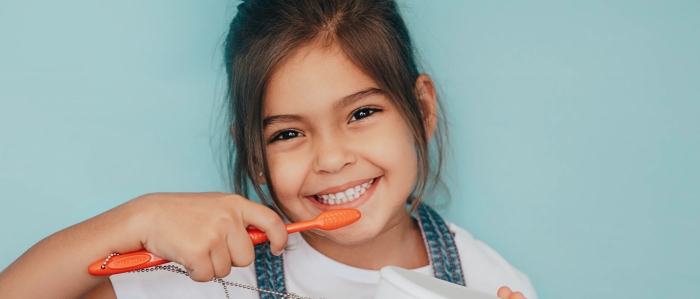The Importance of Baby Teeth

Everyone knows that baby teeth eventually fall out so it can be easy to think that they don’t matter. Quite the contrary actually. Baby teeth, or , are key to a child’s health and development.
Just think: if they didn’t have baby teeth, how would they eat, speak, or smile properly? Of course they could learn ways around certain behaviors but it certainly wouldn’t be easy.
In this blog, we’ll be looking into 3 reasons why baby teeth are important for your child and how preventive care now means healthy teeth later on.
Placeholders for Permanent Teeth
Humans develop two sets of teeth: primary (baby) and secondary (adult). The first round of teeth amount to 20 total and are small in size. When a child is about 6 years old, they will begin to lose their erupted baby teeth in order to make room for 32 permanent teeth waiting underneath the gum line.
Before their adult teeth come in, however, their baby teeth hold space in their jaws. If a tooth is lost prematurely, the open spot left behind can cause oral complications. Surrounding teeth wanting to drift into the area will result in crowding and block other permanent teeth from coming in.
Our pediatric dentist will recommend a space maintainer if your child has prematurely lost a tooth. This dental appliance works to leave the space open until the adult tooth is ready to erupt.
Aid in Speech Development
Think of someone who hasn’t yet put their false teeth in. They’re a little hard to understand, right? This is because teeth help with the formation of words. Your tongue, lips, and teeth all work together to allow for words to be spoken by controlling airflow out of the mouth.
The existence and positioning of a aid in their pronunciation. For example, when their tongue strikes their teeth or the roof of their mouth, they learn to make a certain sound. Over time, they use their baby teeth to speak full sentences and communicate effectively. Without teeth at all, they would not be able to do this.
Affect Overall Health
Strong, healthy teeth are crucial when it comes to your child’s ability to chew. When teeth are decayed, proper eating becomes harder and nutritional deficiencies can occur.
Moreover, if an untreated infection arises in one or multiple teeth, it can spread to other areas of the body and possibly be life-threatening. Avoid scary medical complications altogether by encouraging your child to brush their teeth at least twice a day and floss daily.
Healthy teeth beget a healthy body so it’s imperative that you help your child form productive oral hygiene habits on their own.
Don’t Delay Treatment for Your Child
Baby teeth play a large role in your child’s oral health. Despite their short stay, they should be taken care of just like adult teeth. Our , can help make preventive care a priority in addition to regular teeth brushing and flossing at home. Schedule an appointment online or call Hudsonville Dental Kids today at (616) 209-4039.
